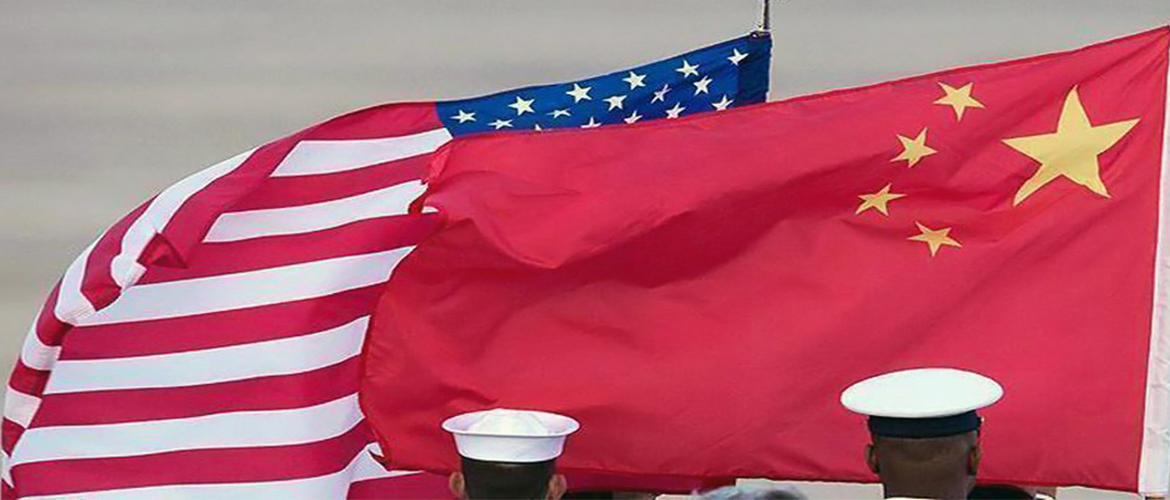A Confrontation of Super Powers– Part III
June 9, 2020 | Expert Insights
Whose Madness is this Anyway?
As already stated, this is a work of fiction, though based on contemporary realities. The technique adopted bears similarity to war-games, based on game theory and practiced in national war colleges. However, if the confrontation described were to actually play out, it would be a dangerous turn of events, for all of mankind. The tit-for-tat responses, played out between US and China, is sometimes referred as the Escalation Matrix, amongst game-theorists and underscores the principle that military responses are fundamentally escalatory, in nature.
The escalation matrix, described so far, can continue to be projected, based on choices exercised by the principal protagonists. While initially options are plentiful, as the game progresses, final end states get more limited. Described in the succeeding paragraphs are two possible end-states to the current fictitious escalation; one favorable to each of the protagonists.
End State 1: The Doves Prevail
The rapid escalation of violence between US and China, on 01 Oct, 2020, is met with alarm, the world over. Many world leaders call on the Presidents of the US and China, to take a step back. Influential members of the US Congress, the Chinese National People’s Congress and captains of Industry appeal to their respective Presidents, to stop further escalation.
Seen in more objective light, the US has lost only one ship (USS Barry). While two of its aircraft carriers were damaged, they would be repaired and restored to active duty. The casualties on the US side are not significant. On the other hand, costs for the PRC are more damaging. The aspiring superpower has lost its aircraft carrier group and several thousand PLAN sailors. It has also exposed its game-changer, the ballistic missile based hypersonic boost guide anti-ship system. The US will now develop a counter to the weapon system, degrading its future effectiveness.
Assessment
However, in the longer term, the PRC with its robust economy still intact, will recover faster. With its indigenous ship-building and space industries, new aircraft carriers will be built and space-based missile systems will get deployed. On the other hand, the US Navy, built on the vision of Alfred Thayer Mahan, has been challenged. Will ballistic missiles and space-based weapon systems replace blue-water navies? Warning has also been served to China’s neighbors on its Eastern seaboard; the US maritime security umbrella will no longer be unchallenged by the PLAN. Is PAX SINICA on the horizon?
End State 2: The Hawks Prey
The concerns expressed by world leaders notwithstanding, the Pentagon’s view prevails and the US decides to take matters in their own hands. The US 7th Fleet, with additional reinforcements, escalates operations in the South China Sea. In the ensuing weeks, PLAN is decimated and its remnant capacities confined to proximity of the mainland. Hong Kong, Taiwan and Macao are occupied by US forces and local governments declare their independence from the PRC. The PRC warns the US of nuclear retaliation, if the mainland is invaded; but, it is apparent to all parties that the PRC would be worse off, in the event of a nuclear exchange. Reminiscent of 2001, when Pakistan the strong supporter of the Taliban, changed sides and joined hands with the US and Operation ENDURING FREEDOM, the mercurial country rejects the PRC and joins hands with US CENTCOM, again. US forces reestablish themselves in Central Asia, the Uighur freedom movement in Xinjiang and the Free Tibet movements are invigorated. It is PAX AMERICANA, again!
Epilogue
While the two end-states described above are plausible, they are both wasteful in human life, expensive to the world economy and dangerous to our plant’s fragile and over-used eco-systems. It is in the wisdom of mankind that both end-states are avoided. The question is, how can narratives be controlled to prevent unnecessary escalations and the possibility of armed & even nuclear conflict?
All leaders, particularly heads of state require credible information (intelligence) to make decisions. It is ironical that in the Information Age, leaders are dependent on national intelligence for credible information. National intelligence has served an important purpose, since the birth of the modern nation state and should continue to fulfil an important role. However, in an increasingly engaged and connected world, leaders must have access to other sources of reliable information and national intelligence itself should be held to a higher technical standard.
Several times, in the last few years, national intelligence services have faced fundamental conflict of interest between ‘truth’ and ‘national interest’; particularly, since the latter (national interest) is open to subjective interpretation. Intelligence professionals, working in national intelligence would be more empowered, if they were expected to follow an established international standard.
Examine the following questions thrown up in recent weeks:
(a) Did China create the COVID-19 coronavirus in a laboratory, in Wuhan?
(b) Does China have a vaccine?
(c) Do Huawei products contain inbuilt spyware?
(d) Does Pakistan support terrorist activities in J&K?
(e) Did the Syrian Army under orders from President Bashar Assad, use chemical weapons on civilians?
(f) Did Russia support the 2016 Donald Trump Presidential campaign?
(g) Did WHO collude with China to underplay the COVID-19 pandemic?
Citizens and governments alike, would like credible answers to these and other questions. It is perhaps unfair and even unrealistic, to expect national intelligence (irrespective of nation), to provide impartial (and truthful) answers to these questions. Perhaps, it is time for the world community to invest in ‘Impartial Intelligence’ – a professional body of knowledge, committed to exposing the truth and provide standards to which national intelligence should be held to technical audit.
I believe, Impartial Intelligence should be developed as the product of a global institution, governed by an eminent and independent board; and, without the power-trappings, necessary for the UN’s functional existence. Impartial Intelligence should be beholden to truth not power.


